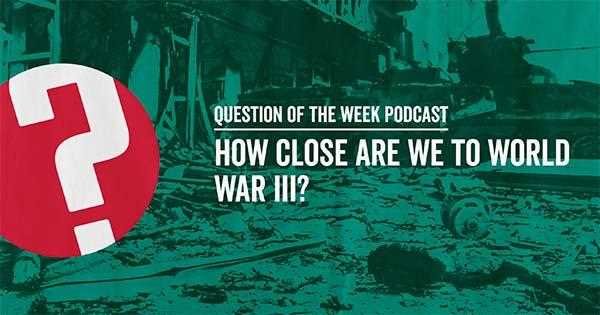The rise of nationalism and populism in various countries, coupled with the growing influence of non-state actors such as terrorist groups, have contributed to a sense of instability and uncertainty in the international political landscape. Additionally, competition for resources, territory, and economic influence has led to conflict and tension between some countries.
The development and proliferation of nuclear weapons also raises concerns about the potential for a catastrophic global conflict, particularly if these weapons fall into the wrong hands or are used in a deliberate or accidental manner.

However, it is important to note that efforts to promote diplomacy, conflict resolution, and cooperation between countries are also ongoing. International organizations such as the United Nations and regional organizations such as the European Union and African Union play important roles in promoting peace and stability.
In conclusion, while there are certainly challenges and tensions in the international political landscape, it is impossible to predict the likelihood of a World War III. However, efforts to promote peace and cooperation between nations should continue to be a priority in order to minimize the risk of conflict and promote a more stable and peaceful world.